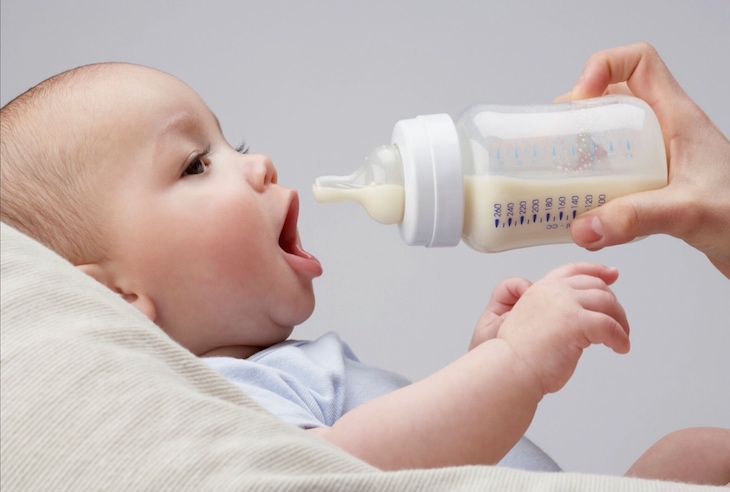A study conducted in the United Kingdom found that infants fed powered infant formula contract more gastrointestinal infections than breastfed infants. Part of the problem is contaminated infant feeding equipment. Almost 3/4 of infants in the UK get infant formula in the first 6 weeks. This number rises to 88% by 6 months of age. At least 3000 hospitalizations every year in the UK may be attributed to formula feeding. Breastfed infants have significantly fewer GI infections.

The World Health Organization recommends that water used to reconstitute powdered infant formula (PIF) be at least 70°C (158°F) to kill pathogens. Powdered infant formula manufacturers state that they cannot produce a sterile product and that it can contain pathogens such as Cronobacter and Salmonella.
For the study, 200 UK-based parents of infants less than 12 months old took part; 151 provided data on PIF preparation, and 143 were included in the analysis of water temperatures used to reconstitute the product.
Researchers found that only 14.9% of PIF preparation machines produced a water temperature of 70°C compared with 78.3% of kettle preparation. The mean temperature of the water dispensed by PIF preparation machines was 9°C lower than kettles. Most parents did wash and sterile bottles and nipples.
In addition, many parents did not always follow National Health Services’s safer PIF preparation guidance, and did not understand the potential risks of powdered infant formula bacterial contamination. The powder seems safe because it is dry, but pathogens can survive in foods with little water content.
In the UK, PIF preparation machines are marketed as an alternative to preparing the product with a kettle, but weren’t included in NHS guidance at the time of writing. A survey showed that 56% of parents use a PIF machine some of the time, and 45% use these machines as the primary PIF reconstitution method.
PIF machines work by dispensing a small “shot” of hot water into a bottle, then the formula is added and shaken, then the machine adds cool water. The concern is that the small volume of hot water doesn’t remain at 70°C long enough to kill any pathogens in the formula. In fact, in real world conditions, the researchers said it was rare for a minimum temperature of 70°C to be recorded when the PIF is added. That small volume of water will cool to around 60°C within two minutes.
Concerns about the water temperature being too hot and destroying nutrients is an issue. But the only nutrient in the formulas that is not heat stable is vitamin C, which the researchers say is “unlikely to be reduced below recommended levels during PIF reconstitution.”
The researchers conclude that parents should follow NHS advice and use a kettle to heat water to reconstitute powdered infant formula. And they say that there is a need for stronger consumer protections in the marketing of PIF and PIF preparation devices to protect infants.




